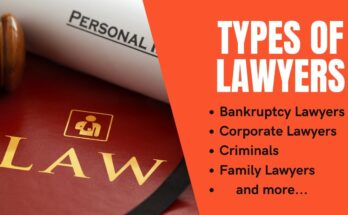Right Attorney in the USA Finding the right attorney can feel overwhelming, especially when dealing with high-stakes legal matters. Whether you’re facing a personal injury case, drafting a will, or starting a business, hiring the right lawyer can make all the difference.Attorney in the USA
But how do you choose the best attorney for your needs? This guide will walk you through the process, from identifying your legal needs to vetting potential candidates. By the end, you’ll know exactly what to look for—and what to avoid—when hiring legal representation.
Why Choosing the Right Attorney Matters
Legal issues can be complex, stressful, and expensive. The wrong attorney could cost you time, money, and even your case. On the other hand, the right lawyer can:
- Save you money by avoiding costly mistakes
- Increase your chances of success in court or negotiations
- Provide peace of mind knowing your case is in good hands
According to the American Bar Association (ABA), clients who thoroughly research their attorneys report higher satisfaction rates and better outcomes. So, where do you start?Attorney in the USA
Step 1: Identify Your Legal Needs
Not all attorneys specialize in the same areas. The first step is understanding what kind of legal help you need.
Common Types of Lawyers in the USA
| Legal Issue | Type of Attorney |
|---|---|
| Personal injury | Personal Injury Lawyer |
| Criminal charges | Criminal Defense Attorney |
| Divorce or child custody | Family Law Attorney |
| Business disputes | Corporate or Business Lawyer |
| Estate planning | Estate Attorney |
| Immigration issues | Immigration Lawyer |
If you’re unsure, many law firms offer free consultations to help determine the right fit.Attorney in the USA
Step 2: Look for Experience & Specialization
Would you hire a general physician for heart surgery? Probably not. The same logic applies to lawyers.
Key Questions to Ask About Experience:
- How long have you practiced law?
- How many cases like mine have you handled?
- What were the outcomes of those cases?
A 2022 study by Martindale-Nolo Research found that attorneys with 5+ years of experience in a specific field had 30% higher success rates than general practitioners.
Step 3: Check Credentials & Reputation
Not all lawyers are created equal. Here’s how to verify their credibility:
A. State Bar Association Membership
Every attorney must be licensed in their state. Check their status on your state’s bar association website (e.g., California State Bar).
B. Online Reviews & Testimonials
- Google Reviews (Look for patterns in feedback)
- Avvo (Legal-specific rating site)
- Better Business Bureau (BBB) (For complaints)
C. Peer Recognition
Awards like “Super Lawyers” or “Best Lawyers in America” indicate peer respect.
Step 4: Assess Communication & Compatibility
A great attorney isn’t just skilled—they’re also someone you trust.
Red Flags in Communication:
- Takes days to respond to calls/emails
- Uses excessive legal jargon without explaining
- Pressures you into quick decisions
Green Flags:
- Listens carefully to your concerns
- Explains legal terms clearly
- Provides realistic expectations
A 2021 Clio Legal Trends Report found that 68% of clients chose lawyers based on communication style rather than price alone.Attorney in the USA
Step 5: Understand Fees & Payment Structures
Legal fees can vary widely. Here’s what to expect:
Common Attorney Fee Structures
| Fee Type | Description | Best For |
|---|---|---|
| Hourly Rate | Pay by the hour (e.g., $150–$500/hr) | Complex business cases |
| Flat Fee | One-time fixed cost (e.g., $1,500 for a will) | Simple legal tasks |
| Contingency Fee | Pay only if you win (common in personal injury) | Injury claims |
| Retainer Fee | Upfront deposit for ongoing services | Long-term legal needs |
Pro Tip: Always get fee agreements in writing to avoid surprises.
Step 6: Schedule a Consultation
Most attorneys offer free or low-cost initial consultations. Use this time to:
✅ Discuss your case in detail
✅ Evaluate their expertise
✅ Gauge their enthusiasm for your case
If an attorney seems disinterested or dismissive, keep looking.
Step 7: Compare Options Before Deciding
Don’t settle for the first lawyer you meet. Interview at least 2-3 attorneys before making a decision.
Comparison Checklist:
- Experience in your specific legal issue
- Fee structure & affordability
- Communication style & responsiveness
- Client reviews & success rates
Final Tips for Hiring the Best Attorney
- Trust your gut – If something feels off, it probably is.
- Avoid “guarantees” – No ethical lawyer can promise a win.
- Read the contract carefully – Ensure no hidden fees or clauses.
- Stay involved – A good lawyer keeps you informed at every step.
Conclusion: Finding the Right Lawyer Takes Effort—But It’s Worth It
Choosing the right attorney in the USA doesn’t have to be a guessing game. By following these steps—identifying your needs, checking credentials, assessing communication, and comparing options—you’ll find a lawyer who truly fits your case.


